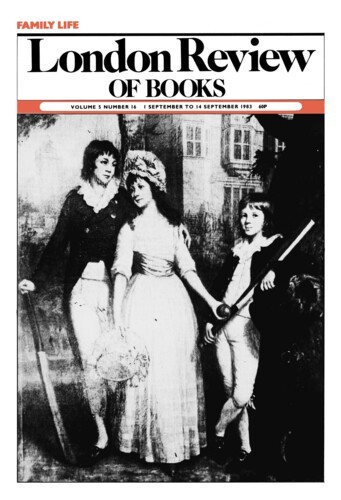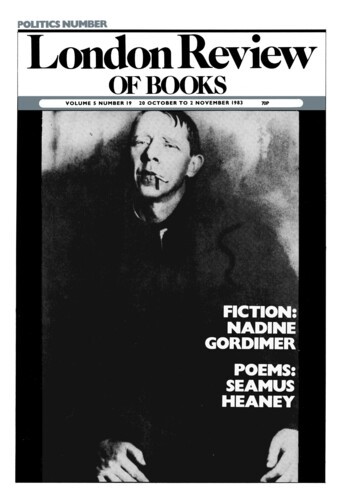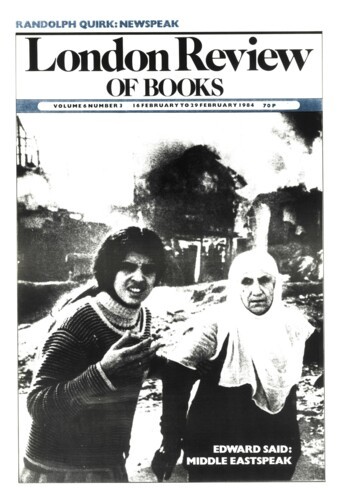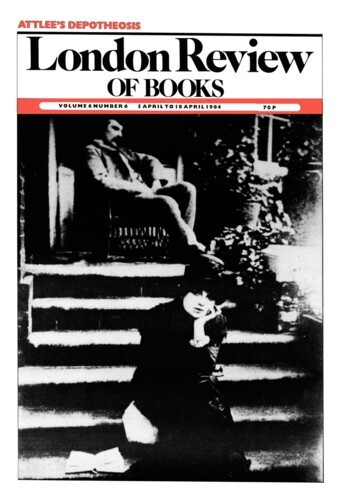Henson’s Choice
C.H. Sisson, 1 September 1983
Anyone confused by the goings-on in the Church of England in the last few years might turn with relief to the biography of a prelate born in 1863, who retired from his diocese of Durham in 1938 to spend the marginal years of old age brooding over a long career, and made his final exit in 1947. Retrospect of an Unimportant Life is what Henson called the memoir over which he spent so much time in those years, and no man in his right mind is likely to claim much more for himself at an age when all ambitions should have receded. There was a flicker of what might have been a glorious sunset, in 1940, when Churchill recalled Henson to a canonry at Westminster, but when he arrived at the Abbey it was to find ‘that he could hardly read the lessons properly, even with a magnifying glass as well as spectacles; that his sermons were to tiny congregations and in the blackened church he could hardly see his notes.’ Before the end of the month he had resigned, ‘realising that it was time to go back to his quiet corner and wait for the release of death.’




